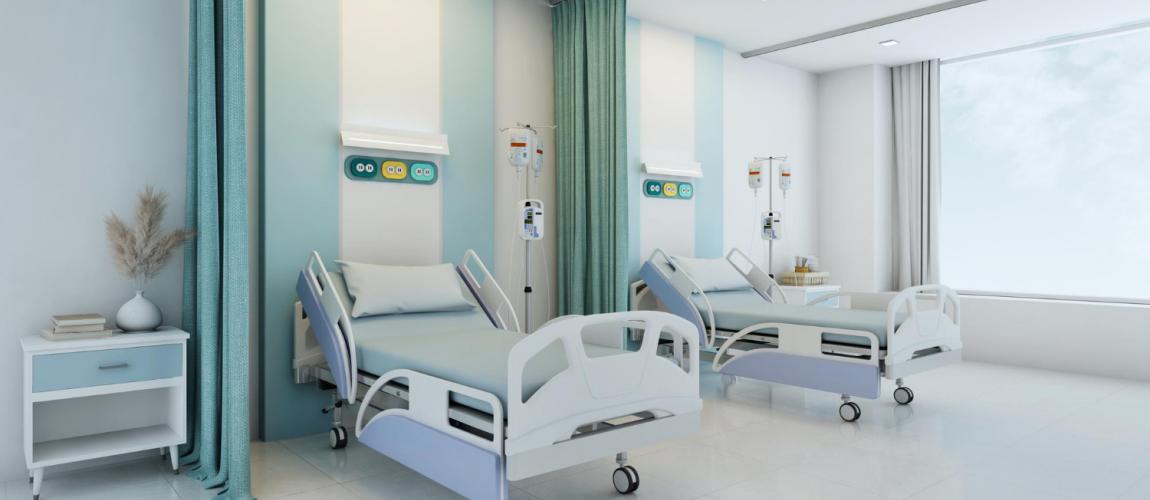Hemodialysis Centers, Dhaka and Chittagong, Bangladesh

Photo Credit: Image by Freepik
On this page: Challenging Case: Hemodialysis Centers, Dhaka and Chittagong, Bangladesh. Find more at the Municipal Public-Private Partnership Framework - Project Summaries section for brief summaries of around 100 projects from around the world, examples of successes and challenges, as well as innovative ideas on solutions, or visit the Guidelines to Implementing Asset Recycling Transactions Section Overview and Content Outline, or download Full Version of the Report.
Project Summary: Background Kidney failure is very prevalent in Bangladesh. Around 40,000 patients die each year due to kidney disease and approximately 150,000 patients lead restricted lifestyles due to lack of access to treatment. Existing dialysis facilities at hospitals were inadequate, with obsolete equipment and rundown buildings, as well as costly for poorer individuals. In response, the Bangladesh PPP Office requested IFC’s PPP transaction advisory team to help structure a PPP transaction for the construction, operation, and maintenance of dialysis facilities in select hospitals in the country’s biggest cities, namely the National Institute of Kidney Diseases and Urology (NIKDU) in Dhaka and Chittagong Medical College and Hospital (CMCH) in Chittagong. Project Structure In 2015, following a competitive and transparent bidding process, the Bangladesh PPP Office awarded the PPP contract to an Indian company, Sandor Medicaids Private Limited. The winning bidder was known as a well-regarded company that was already operating a network of dialysis centers across India. The private operator would be responsible for designing, refurbishing, procuring and installing equipment, and financing and maintaining operations of dialysis centers for ten years. NIKDU and CMCH would provide space, utilities, and nephrologists at the two centers. The private operator would employ and maintain all staff other than nephrologist. The project entailed the installation of 110 dialysis stations – 70 stations at NIKDU at a total cost of USD 2 million and 40 stations at CMCH at a total cost of USD 1 million. The project was financed at a debt to equity ratio of 40:60, where the debt is mainly used for equipment and machine imports. The project uses a cross-subsidization model with dual pricing – one (highly subsidized) fixed tariff for government patients, and a higher but still below market tariff for private patients. The private operator was obliged to provide 1950 dialysis sessions for free and 19,500 dialysis sessions for USD 5 for government patients, while private patients would be charged USD 27-28 per session, at most. The Government of Bangladesh would pay around USD 700,000 each year to the operator to subsidize the fees charged to patients. The dialysis centers in CMCH and NIKDU were inaugurated in March and July 2017, respectively. Lessons Learned This project was featured as one of the two “Pioneering projects” in KPMG Infrastructure 100 World Markets Report 2015 and selected as one of the top 100 projects worldwide in 2015. The project increased Bangladesh’s national treatment capacity for dialysis by 12.3 percent, potentially saving over 1,200 lives per year. Around 150 to 180 patients come each day to receive dialysis service at the centers. Nonetheless, there have been reports that dialysis service schedule/dates at NIKDU are being sold illicitly by some hospital staff. The Government of Bangladesh has issued an official order to strengthen the monitoring system and has stated it will take punitive action against any employee who is found to be involved in this practice. The project benefitted from the following: Having a good transaction advisor, here IFC, to help structure the project. As a result, the contract has a fair and balanced allocation of risk between public and private sectors based on international PPP contracting standards, adapted to the context of Bangladesh; A transparent and competitive bidding process that resulted in a suitable deal for the public authority; and Proactive involvement by the government, including the provision of the availability payment and efforts to curtail the illicit sale of dialysis services.1 Footnote 1: Case source(s): https:// www.ifc.org/wps/ wcm/connec t/40b6a9804b f943048918d97cb f6249b9/PPPStories_ Bangladesh_ DialysisCenters. pdf?MOD=AJPERES https://www.unece. org/fileadmin/DAM/ ceci/documents/2016/ PPP/Forum_PPPSDGs/ Presentations/ Case_3_Bangladesh__ Health_Sector__Syed_ Afsor_H._Uddin.pdf https://blogs.worldbank. org/ppps/measuringsuccess- lives-savedpioneering- healthpartnership- bangladesh https://www.pppo.gov. bd/events2019_ceoof- the-ppp-authorityvisited- the-ppp-projecthemodialysis- centre-atnikdu. php https://www.daily-sun. com/printversion/deta ils/216084/2017/03/31/ Poor-patients-deprivedof- treatment-at-NIKDU http://www. theindependentbd.com/ arcprint/details/83740/ 2017-03-05
This is a new section of the PPPLRC website and is currently in draft form. Your feedback is welcome: If you would like to comment on the content of this section of the website or if you have suggestions for links or materials that could be included please contact us at ppp@worldbank.org.
To find more, visit the The Municipal Public-Private Partnership Framework - Project Summaries section, the Guidelines to Implementing Asset Recycling Transactions Section Overview and Content Outline, or download Full Version of the Report.
Updated: March 9, 2024